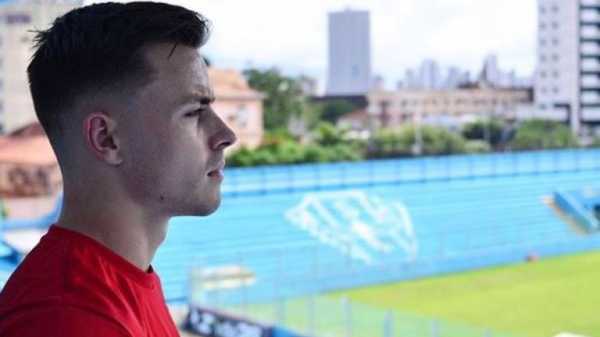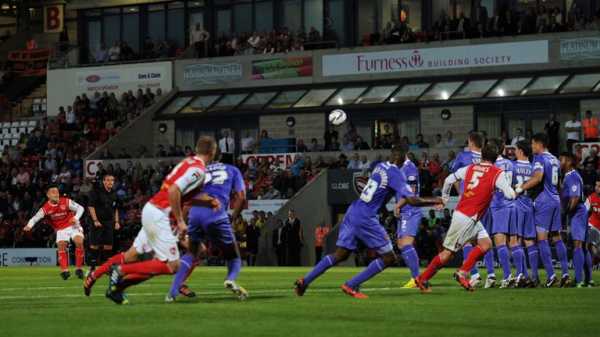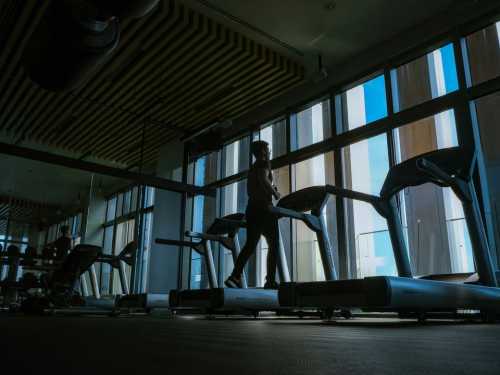
Ryan Williams played for Morecambe and Brentford before embarking on the adventure of a lifetime by signing for Brazilian club Paysandu. In conversation with Adam Bate, he looks back on the illuminating experiences and nasty surprises on and off the field.
Ryan Williams is in reflective mood. He has just returned from a quiet break in Menorca. The calm after the storm. The former Brentford and Morecambe midfielder takes a deep breath before beginning his tale.
“It has been the craziest five months of my life,” Williams tells Sky Sports.
He is referring to the move he made earlier this year to Paysandu, one of the biggest clubs in northern Brazil. What followed was the experience of a lifetime but one that included more red tape than action on the green grass, more dark nights than days in the limelight. “I knew it would be different but I didn’t envisage it being quite what it was,” he says.
He has now returned to Britain after playing just one league game and facing many more challenges. But the experience of sampling another culture and seeing sights such as the famed Iguassu Falls will stay with him forever. He has had time to think about the game – and life – like never before. More time than he would have liked, in truth.

This was not simply another case of a British player struggling to adapt to life abroad. Williams is an intrepid sort and enjoyed his time in Canada with Ottawa Fury. He is not some pampered player. He can handle the basics like setting up a bank account in a foreign country and mixing with new people. “It was not a confidence issue,” he insists. “It was a safety issue.”
The more that you discover about the city of Belem, where Paysandu are based, the more you appreciate his predicament. Belem ranks as one of the top 10 most dangerous cities in the world in terms of its murder rate and Williams was not earning enough money to be immune to its unsettling side. “The living situation was difficult for me,” he admits.
“If you are in a cosmopolitan city like Rio, Sao Paulo or Florianopolis, it is still not going to be plain sailing but it is definitely adaptable. Belem was different. Even some of the Brazilian lads would tell me that this was not what they were used to either. So while I was really happy to take on the challenge, I recognised early on that it was going to be difficult.
“At first I would just walk out of my apartment to get some bread or milk but the lad I was living with, a midfielder called Timbo, would tell me that I didn’t realise how dangerous it was. Even in the daytime, kids would come up to me and tell me in broken English that it was not safe for me to be out on the streets. That was a bit of an eye-opener.


Man Utd vs Leicester
August 10, 2018, 7:00pm
Live on

Get Sky Sports Get a Sky Sports pass
“It went dark quite early, around 6pm. So sometimes it would get to 7pm and you’d realise you needed some ingredient that you had forgotten for your dinner. But you simply could not go out after dark. I have a video on my phone of a guy getting kidnapped a few blocks down. In the papers you would regularly see pictures of people dead on the floor.
“The problem is that you can only play football for three or four hours a day in training so I was spending the rest of the time staring at the four walls. I tried to use the time constructively, reading some books and focusing on self-improvement, but you need a social life too. Even if it is just going for a coffee or having a walk to the shops.”
Even from the confines of his apartment, it became clear Williams was at a club on a different scale to what he had been used to. “Don’t get me wrong, they were lovely people and being an Englishman playing for the biggest team in the city, they went crazy for me,” he says. “We had crowds of 40,000 for some games and they were so passionate.
“When it was announced that I was signing, I got an inkling that there was going to be a lot of media exposure because my Instagram blew up. I had 10,000 Brazilians following me within a month. They were very active on there so the next thing was that my Instagram was full of Portuguese comments and I had no idea whatsoever what they were saying.
“The funny thing was coming home from training and switching on the television and they would be showing footage of our training session from that morning. At Morecambe, you might make it onto television once or twice a season, particularly if you did well in a cup game. That was all good fun but here it was every single day and full throttle.”

Even the training sessions were an experience. Williams is a technical player, a set-piece specialist who has played futsal for England, so he was well placed to adapt to the Brazilian style of play. While Canada had taught him plenty about physical preparation and analysis, it was life in Brazil that really got him thinking about how the game is played.
“It gave me so many ideas and so much food for thought about how differently you can play the game,” he explains. “It was fascinating because it made me think about how culture impacts the way that players develop. It has shaped Brazilian football and the lads are very open about that. They don’t like chasing the ball so they do everything they can to keep it.
“For example, in League One or League Two, if a team is pressed they will typically look for the forwards to make runs in behind and hit balls over the top. In Brazil, they encourage you to press them. They want you to press them because they are so comfortable playing under pressure that they will just play through you. Suddenly they are running at your back four.


Sheff Utd vs Swansea
August 4, 2018, 5:15pm
Live on

Get Sky Sports Get a Sky Sports pass
“If I were managing a team in England I would set them up to play a high press because a lot of opponents don’t have the quality to play out under extreme pressure. But in Brazil, because of their culture, they are so good at not giving the ball away because they don’t want to be winning it back in the heat. They have played like that since they were kids.
“The result is that they are kind of press resistant. If you go and press a Brazilian team then with a bit of a trickery or a couple of passes you are going to be exposed. So if I were setting a team up in Brazil, I’d play a mid-block because you want them to have the ball where they are least dangerous in their own half. Just let them pass it side to side.”
Hearing Williams speak with such enthusiasm about Brazilian football, it is tempting to think that he found his calling out there in South America. “The style definitely suited me,” he acknowledges. “In the lower leagues in England, perhaps you don’t need to have the ability to play in such tight spaces. In Brazil, you probably need a different set of skills.
“In England, even if you aren’t technically a great player, you can still find a way to play if you work hard, run, tackle and kick. A manager will find a space for you. What you need in England is the ability to read second balls well. But because of the way that they play in Brazil, if you’re not good on the ball then you will just have no chance of playing.”

1:00 Take your seat for the new Premier League season live on Sky Sports
Sadly, Williams’ prospects at Paysandu were harmed for off-the-field reasons. Visa issues delayed his debut and the opportunity never really came again. “What screwed me was the organisational aspect,” he explains. “I turned up and thought I’d be playing on the Saturday. Then they realised I needed a visa. In Canada, this was the first thing they sorted.
“I had to get documents flown in from England, then fly out of the country to Argentina and fly back to get my visa from the border. At this point I had been in Brazil for six weeks and was getting angry. It was two days before the deadline and I arrived at the offices to get me signed but the systems were down across the country. I ended up missing the deadline.
“That meant I couldn’t play in the Copa Verde which we ended up winning. The manager was obviously short on players in my position and so he ended up bringing in two or three attacking midfielders. Fair play to him, he had no choice and one of the lads came on loan from Sao Paulo. By the time that I could play, we were unbeaten in seven games.
“My only slight issue was that I came on for 20 minutes for my debut when we were 1-0 down and was involved in winning the penalty that got us back level. I think the fans were excited to see me play and they were then pushing for me to play more. I definitely had a good game and I was expecting more chances but I didn’t come on again.
“I don’t mind sacrificing and living in a difficult city if I am playing football. If I am not playing football then I would rather go home.” So that’s what he did. The problem now is finding an opportunity back in Britain. At 27, he is in his prime, but his last action on home soil came in the Scottish Premiership with Inverness Caledonian Thistle and that was two years ago now.

“I am waiting to hear what is available but it is never an easy thing,” he says. “I know that everyone says that more English players should go abroad but when you do come back it is not that easy to get back in because it’s a bit out of sight out of mind. People are saying that I have been away for two years and that they have other targets lined up.
“No disrespect to League One and League Two, which is probably the level I am looking to get back in at, but the level at Paysandu in Serie B was much higher. Teams in England don’t acknowledge that. You need a manager with a bit of bravery and a bit of foresight to even let you come in and train.”
All of which might leave Williams with regrets. But he has none.
“It sounds crazy but it was important for my development as a person to go there,” he says. “My team-mates were amazing, the football was fantastic and I have grown up a lot. It was an avenue I never thought I would go down but I would 100 per cent recommend it. I have improved more in two years than in the previous ten. Now, I just want to play football.”
Also See:
Sourse: skysports.com






